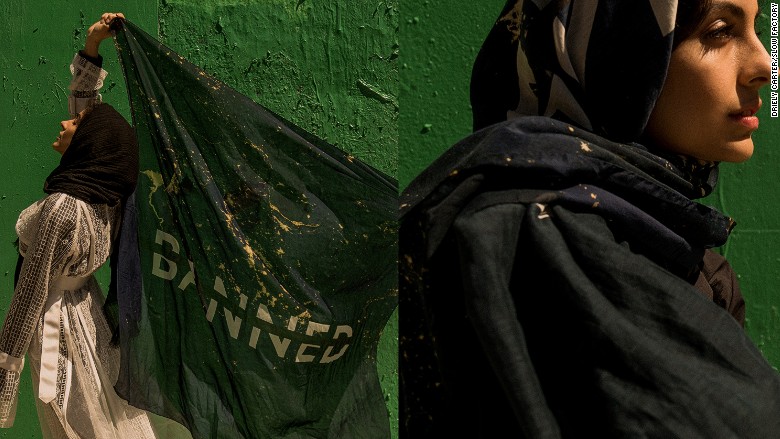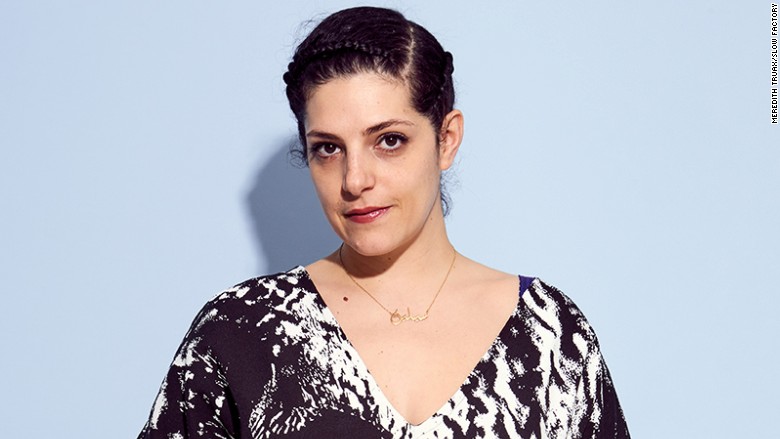
Activism has been the focus of Celine Semaan's fashion business for years. Now she's using her creations for political protest.
Earlier this year, the Brooklyn-based designer launched a line of products to protest President Trump's travel ban when it was first proposed.
The collection includes a silk scarf printed with a NASA photograph showing the seven countries (Iran, Iraq, Libya, Somalia, Sudan, Syria and Yemen) whose citizens would be barred entry to the U.S. overlaid with the word "Banned."
Singer and actress Selena Gomez was recently photographed wearing a necklace designed by Semaan for the same collection, bearing the words "We the People," a reference to the U.S. Constitution.
Semaan is a former refugee who fled Lebanon for Canada with her family at the age of four, and later moved to the U.S.
Slow fashion
She set up her fashion label Slow Factory five years ago, starting out printing NASA photos on silk scarves. She chose the name to promote the "slow fashion" movement, which emphasizes sustainability and ethical production and offers an alternative to the global retail industry's rapid turnover of short-lived designs.
Semaan says she deliberately grew the business slowly, and without loans, to create a sustainable enterprise.
"It's more than a $20 t-shirt that you buy that says 'I am feminist'," said Semaan. "It gets people to really embody the message and wear it every single day."

When the travel ban was first announced, Semaan's immigration lawyer advised her not to leave the U.S., even though she had a green card and Lebanon was not among the proscribed countries.
"It really impacted me and I wanted to do something about it," Semaan said.
(The Supreme Court in June provisionally allowed parts of Trump's revised travel ban to go into effect.)
The final piece in the collection is a reversible jacket with an Arabic translation of the First Amendment to the Constitution -- which guarantees freedom of speech -- printed on one side and the English version on the other.
Slow Factory gives 10% of the profits from each of its collections -- thousands of dollars each quarter, according to Semaan -- to a nonprofit partner, including American Near East Refugee Aid and the American Civil Liberties Union.
Semaan's latest project is less overtly political but still socially conscious: a clothing collection that will be produced using denim made from plastic bottles recovered from landfills in Haiti.



